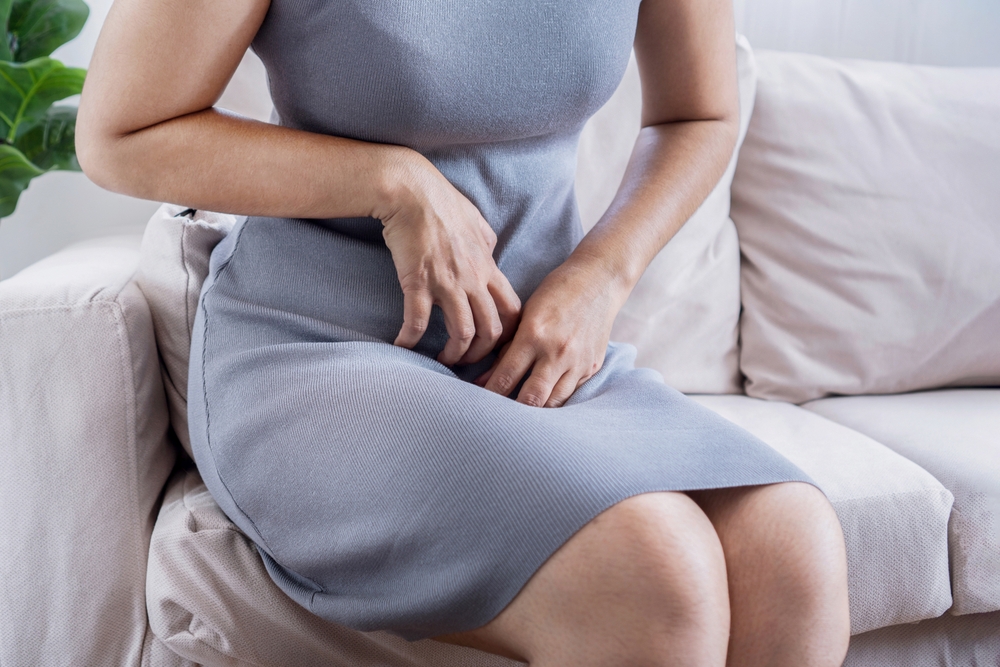Experiencing itching in private areas can be uncomfortable and concerning, yet it’s a common issue that many people face. Understanding the possible causes and when to seek medical attention is essential for relief and prevention.
Let’s be honest — this is one of those topics nobody wants to discuss at dinner parties, but ignoring the problem won’t make it go away. The good news is that most causes of intimate itching are treatable once you know what you’re dealing with.
Poor hygiene habits create perfect breeding grounds
Inadequate hygiene can lead to buildup of sweat, bacteria, and dead skin cells, causing persistent itching. This doesn’t mean you’re dirty — sometimes it’s about using the wrong products or techniques.
Wearing tight or non-breathable clothing makes things worse by trapping moisture and heat, creating an ideal environment for irritation. Those cute synthetic underwear might look great, but they’re not doing your intimate health any favors.
The solution isn’t necessarily washing more — it’s washing smarter. Use mild, unscented soap and lukewarm water. Avoid scrubbing too hard, as this can actually worsen irritation rather than solve it.
Fungal and bacterial infections love moisture
Yeast infections and bacterial vaginosis are common culprits in women, while jock itch often affects men. These infections thrive in moist environments, leading to that maddening cycle of itching and discomfort.
The tricky thing about these infections is they can develop even when you’re doing everything right. Hormonal changes, antibiotic use, or even stress can disrupt your body’s natural balance and create conditions for infection.
Early identification and treatment prevent these conditions from getting worse and spreading to partners. Over-the-counter antifungal treatments work for many yeast infections, but persistent problems need professional evaluation.
Your laundry detergent might be the villain
Products like soaps, detergents, or even certain fabrics can cause allergic reactions in sensitive skin. These reactions often result in redness, swelling, and intense itching that seems to come out of nowhere.
The most common triggers include heavily fragranced soaps, fabric softeners, synthetic materials, and harsh detergents. Even products marketed as “feminine hygiene” items can be too harsh for delicate tissue.
Identifying and eliminating triggers is crucial for preventing recurrence. Switch to hypoallergenic, fragrance-free products and see if your symptoms improve over a few weeks.
When STIs are causing the problem
Certain sexually transmitted infections, such as herpes or trichomoniasis, may cause itching alongside other symptoms like unusual discharge, sores, or pain during urination.
This is where the embarrassment factor really kicks in, but early diagnosis and treatment are crucial for managing these conditions effectively. Most STIs are completely treatable when caught early.
If you’re sexually active and experiencing persistent itching with other symptoms, getting tested removes the guesswork and gets you proper treatment faster.
Red flags that mean see a doctor now
While occasional mild itching can be normal, certain symptoms require professional attention. Watch for persistent itching that doesn’t improve with basic hygiene changes or over-the-counter treatments.
Skin changes like rashes, sores, or discoloration may point to conditions like eczema, psoriasis, or lichen sclerosus, which require specific medical treatments.
Unusual discharge in women, particularly if it has a strong odor or abnormal color, may signal infections that need prescription medications. For men, any discharge accompanied by itching should be evaluated promptly.
Pain, swelling, or burning sensations combined with itching often indicate infections or allergic reactions that need immediate evaluation.
Practical solutions that actually work
The foundation of relief starts with proper daily care. Wash the affected area daily with mild soap and lukewarm water, then pat completely dry. Moisture trapped in intimate areas creates problems.
Clothing choices matter more than you might think. Cotton underwear allows air circulation, while synthetic materials trap heat and moisture. Change out of sweaty workout clothes immediately rather than staying in them for hours.
Avoid douches, scented wipes, or heavily fragranced products in intimate areas. These disrupt the natural bacterial balance and often cause more problems than they solve.
Treatment options from mild to prescription strength
For mild cases, over-the-counter antifungal creams, hydrocortisone ointments, or antihistamines may provide relief. Always follow package directions and consult a pharmacist if you’re unsure about which product to choose.
Prescription medications become necessary for bacterial infections, chronic skin conditions, or persistent fungal infections. Antibiotics, stronger antifungals, or antiviral drugs might be part of your treatment plan.
Chronic conditions like eczema or lichen sclerosus require ongoing management with prescribed treatments. Your healthcare provider can develop a maintenance plan that prevents flare-ups.
Prevention beats treatment every time
Daily habits that support intimate health include staying hydrated, eating a balanced diet rich in vitamins and minerals, and wearing appropriate clothing that allows air circulation.
Safe sex practices, including barrier protection and regular screenings, prevent many infections that cause itching. Open communication with partners about health concerns helps everyone stay healthier.
Regular check-ups ensure any developing issues get caught and treated early. Don’t skip discussing intimate health concerns during routine visits — your doctor has heard it all before.
The emotional side nobody talks about
Intimate itching affects more than just physical comfort — it can impact your emotional well-being, self-confidence, and intimate relationships. Feelings of embarrassment or anxiety about the condition are completely normal.
Remember that healthcare providers handle these concerns professionally and can offer effective solutions tailored to your specific situation. This is a manageable issue that millions of people deal with successfully.
Taking action to address intimate itching isn’t just about physical relief — it’s about reclaiming your comfort and confidence in your own body.
















